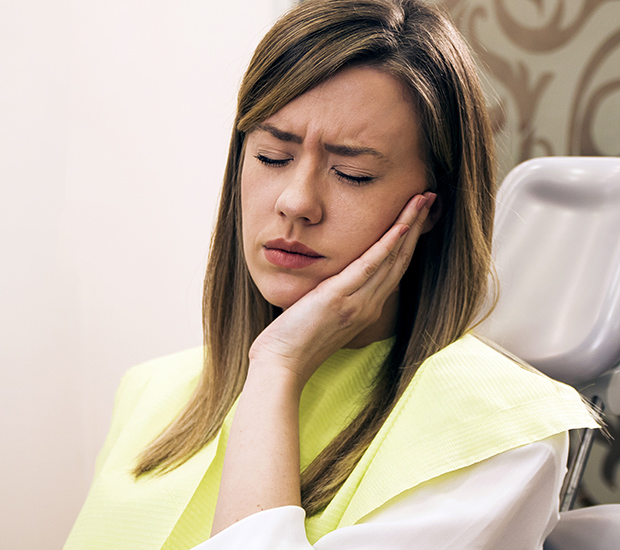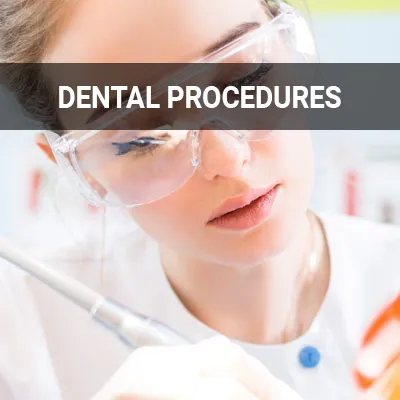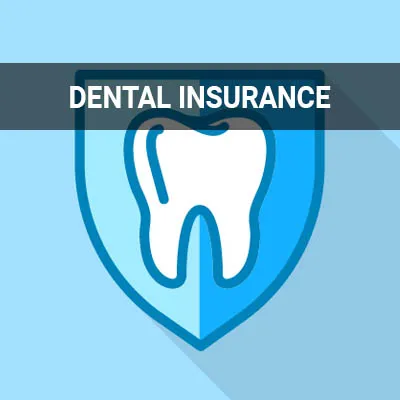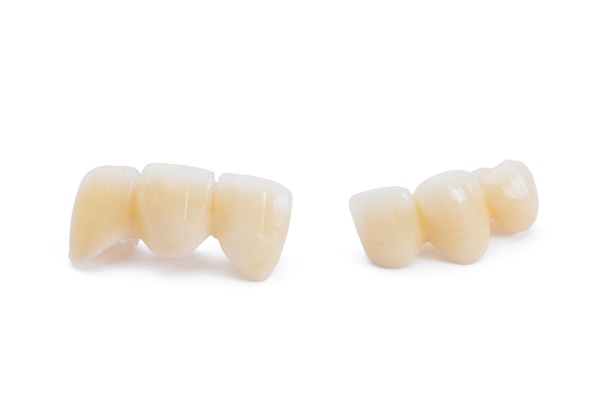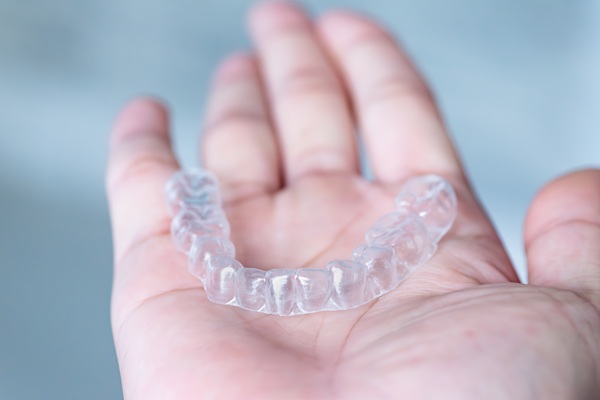TMJ Dentist Quincy, IL
A TMJ dentist can help provide relief for people with jaw discomfort or pain. Visiting a dental provider is one of the ways patients can finally get treatment for temporomandibular joint soreness or other jaw and chewing disorders. TMJ dentist treatment focuses on evaluating problems and pain from the temporomandibular joint and relieving the issues.
TMJ dentist treatment is available at Buffalo Prairie Dental in Quincy and the surrounding area.People may know this common disorder by the abbreviations TMJ or TMD, which stand for the temporomandibular joint disorder. TMD can cause discomfort when chewing, swallowing, yawning, and speaking.
At our office, patients can get treatment for TMD pain. Our team takes a comprehensive approach to discover the underlying reason for jaw pain and offers many different ways to treat this disorder. Call us at (217) 334-4312 for an evaluation appointment today.
Why Temporomandibular Joints Are So Important
The mouth has one temporomandibular joint on each side. These joints connect the jaw to the rest of the face. Besides moving up and down, they also provide motion from side to side. This flexibility is what allows people to talk, laugh, and eat. These activities are vital parts of life.
On the inside, these joints are covered with cartilage for protection. A special disk rests in between the ball and socket to provide extra cushioning. Muscles and tendons connected to the jaw hold it in place and also assist with motion.
“Besides moving up and down, they also provide motion from side to side.”
What Makes a TMJ Dentist Different
A TMJ dentist offers different treatment possibilities to help patients feel more comfortable. Each case of TMD is different, and sometimes, the dentist may use a combination of therapies to help patients ease their pain. A TMJ dentist is familiar with all types of TMD and how to treat them. Here are some common TMD treatments:
- Dental Appliances: For TMD cases that involve grinding of the teeth, the dentist may suggest a nightguard for sleeping. To utilize these guards, patients must get a custom fitting and a mold of their teeth. Individuals should wear bite guards a few hours each day or during sleep for ideal results.
- Exercises: TMJ dentists like to start with conservative treatments for TMD first. We may show patients how to relax and exercise the jaw muscles to get pain relief. The exercises work by helping stretch the muscles, increase range of motion, and reduce stiffness.
- Medications: Dentists may also prescribe medications to help with pain relief. Prescription muscle relaxers, anti-anxiety medications, analgesics, or anti-inflammatory drugs may help. Some of these medications are only for short-term use.
- Orthodontics or Alignment Treatment: If the problem results from poor bite alignment, the dentist may use orthodontic appliances to correct the jaw and bite. Sometimes, there may be a need to reshape or repair teeth to fix the bite. The dentist can adjust the way the teeth bite down to help with jaw discomfort.
“A TMJ dentist is familiar with all types of TMD and how to treat them.”
When to See a TMJ Dentist
There are numerous signs that a patient might suffer from TMD and should see a TMJ dentist. Jaw pain, headaches, ear pain, sore jaw muscles, and clicking or popping in the jaw are symptoms of TMD. Seeing a skilled TMJ dentist helps patients determine the cause of these concerns. However, TMD symptoms are also common symptoms of other disorders, so it is important to get a medical professional's advice before determining if it may be TMD.
According to the National Institute of Dental Craniofacial Research, there is no one diagnostic test for TMD. The TMJ dentist reviews medical and dental histories and usually takes X-rays to make a diagnosis. Then, the dentist conducts an oral exam to discover what the source of pain may be.
“Jaw pain, headaches, ear pain, sore jaw muscles, and clicking or popping in the jaw are symptoms of TMD.”
Check out what others are saying about our dental services on Yelp: TMJ Dentist in Quincy, IL
How a TMJ Dentist Can Help
There are many treatments to help with TMJ pain. Some reduce inflammation of sore tissues and strengthen the patient's jaw muscles. Other therapies promote relaxation and help to ease tense muscles and tendons.
Another way TMJ dentists provide relief is by correcting poor dental alignment. When teeth fit together correctly, TMJ muscles can work smoothly. This can also help to prevent clenching and grinding. Using special orthodontic appliances or mouth guards, it is often possible to reduce the effects of grinding the teeth at night.
“When teeth fit together properly, TMJ muscles can work smoothly.”
Questions Answered on This Page
Q. What do the temporomandibular joints do?
Q. How can a dentist help with TMJ?
Q. What makes a TMJ dentist different?
Q. When should I see a TMJ dentist?
People Also Ask
Q. Beyond regular checkups, what additional procedures might a dentist recommend?
Q. What other preventative services are available?
Q. What lifestyle choices help promote good oral health?
Q. What should I know before beginning my search for a dentist?
Frequently Asked Questions
Q. How can I prevent TMJ?
A. There is no way to prevent this disorder completely, but some habits help relieve jaw stress and fatigue. TMJ dentist patients should pay special attention to their posture and practice better habits when working and sitting. Avoiding hard-to-chew foods, stretching regularly, and massaging the cheeks and jaws may help relieve jaw pain.
Q. How do I relieve TMJ symptoms at home?
A. Home remedies may not cure TMD, but some measures can help reduce the discomfort. For example, ice or heat may help with serious pain or swelling. Reducing stress and trying relaxation techniques may also help. For more at-home tips, see the TMJ dentist.
Q. Do weather changes make TMJ worse?
A. Some patients find that certain weather conditions make TMD pain worse. Winter weather, such as snow or ice, and the drier conditions in the air sometimes impact TMD pain levels. It is important to talk to the TMJ dentist for treatment options if the pain intensifies.
Q. Will the TMJ dentist recommend surgery?
A. While there are some surgical options for TMD pain, most patients get relief without invasive treatment. In some cases, the dentist may talk to the patient about surgery. Surgical options aim to correct physiological issues causing joint dysfunction.
Q. Can my primary care physician treat TMJ?
A. Patients with TMD pain may have more positive outcomes if they also see a TMJ dentist. A dental professional with experience treating TMD can often recommend effective treatment options for patients. The dentist partners with the patient's primary care physician to design the right treatment.
Dental Terminology
Call Us Today
Are you having trouble opening and closing your mouth or experiencing headaches? If you think you may have a TMJ disorder, call us at 217-334-4312 to schedule an evaluation right away.
Helpful Related Links
- American Dental Association (ADA). Glossary of Dental Clinical Terms. 2024
- American Academy of Cosmetic Dentistry® (AACD). Home Page. 2024
- WebMD. WebMD’s Oral Care Guide. 2024
About our business and website security
- Buffalo Prairie Dental was established in 2019.
- We accept the following payment methods: American Express, Cash, Check, Discover, MasterCard, and Visa
- We serve patients from the following counties: Adams County, Brown County, Marion County and Lewis County
- We serve patients from the following cities: Quincy, West Quincy, Taylor, Payson, Camp Point, Mendon, Mt Sterling and La Grange
- National Provider Identifier Database (1750440632). View NPI Registry Information
- Norton Safe Web. View Details
- Trend Micro Site Safety Center. View Details
Back to top of TMJ Dentist
